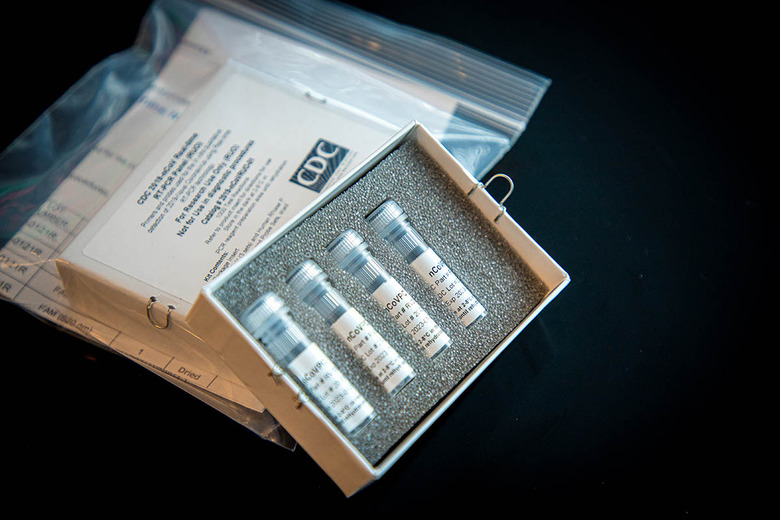FDA Confirms At-Home Coronavirus Tests Are In Pipeline
The FDA is working with coronavirus test developers on at-home kits, that might eventually allow COVID-19 diagnostics to be performed at home, though the public health agency warns that there are still barriers to any such system launching. While the US Food and Drug Administration has now issued 34 of the so-called emergency use authorizations for coronavirus diagnostics, it confirmed, so far no at-home COVID-19 tests have been given the green-light.
"The FDA is supportive of at-home testing for COVID-19, provided there is data and science to support consumer safety and test accuracy," the agency said in an update. "We are actively working with developers toward the goal of authorizing EUAs for home use tests once appropriate validation has been completed."
Access to coronavirus tests has proved to be a significant bottleneck in dealing with the pandemic, with limited availability denying valuable insight into the progress of community spread and a precise fatality rate. Early promises of simplified drive-thru testing across the US has failed to materialize in practice. Even now, with President Trump talking about a roadmap to reopening the country, it remains difficult to get tested for COVID-19 and, even if a test is available, often requires breaking social-distancing protocols in order to visit a hospital or clinic.
At-home tests could provide an alternative to that, though they come with issues of their own. For a start, they rely on safe and correct sampling, but that specimen also needs to be correctly packaged and then shipped back to a lab where the actual diagnostics would take place.

The fact that most COVID-19 tests use either a throat or nasal swab, which can be uncomfortable to perform even as a frontline healthcare worker, adds to the complexity. A saliva-based test was granted emergency use authorization earlier this week, which could be significantly more straightforward. However, the FDA points out, specimens would still be at the mercy of shipping conditions.
"Home collection raises several issues of importance," the FDA outlines, "including whether the lay user can safely and properly collect the specimen, whether the components of the specimen transport media are safe for use in the home environment (since some may be toxic), proper shipment, and adequate stability of the specimen given the time lapse between collection and testing and the potential impact of shipping conditions (such as, if the specimen sits in a hot truck)."
One possibility is telemedicine; that is, where a trained healthcare provider uses a video call to make sure the person being tested is correctly gathering and then packaging up the specimen. Even so, the FDA warns, that still leaves a number of potential issues. Specimen stability and shipping conditions would still need to be guaranteed.
"At this time, the FDA has not authorized any COVID-19 test for at-home testing," the agency concludes, "including self-collection of a specimen with or without the use of telemedicine."
Different types of coronavirus test have been granted EUAs by the FDA, though not every diagnostic examines the same things. PCR and antigen testing, for example, can identify whether a person is currently infected with COVID-19. They've been the most prevalent sort of test as healthcare providers attempt to figure out the extent of the pandemic's spread.
Serology – or antibody – tests, meanwhile, can identify whether a person was exposed to coronavirus more than four weeks ago. That's useful to check if someone was infected but has since recovered, but it's less applicable to ascertain current infection rates.
